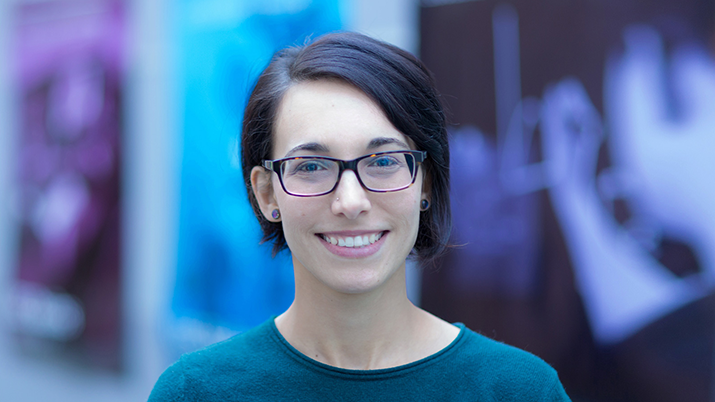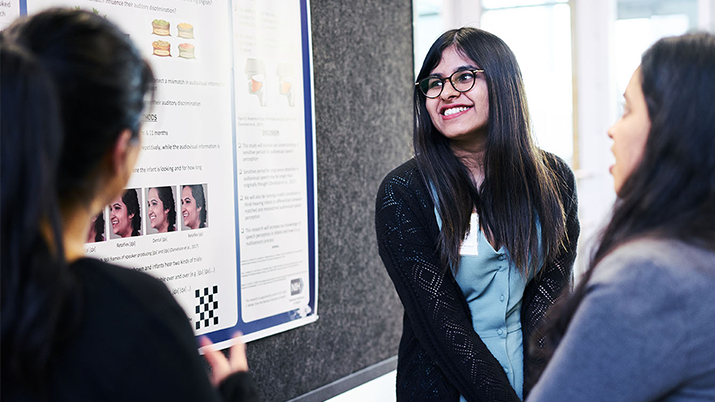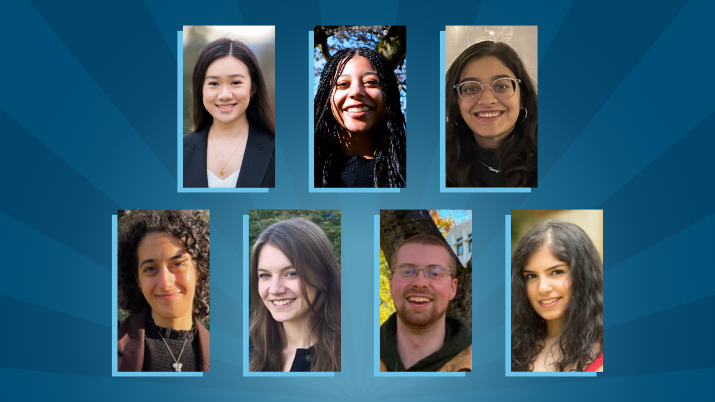

Trish Varao-Sousa
Trish Varao-Sousa is one of the psychology department’s newest alumna, joining a global community of over 10,000 psychology alumni.
On June 17, she officially receives her PhD degree in cognitive psychology. Trish, who wrote her dissertation on whether studies of mind wandering in the lab reflect mind wandering in real life, was drawn to UBC to study attention research in Dr. Alan Kingstone’s Brain, Attention and Reality (BAR) lab. After receiving her MA at UBC, Trish continued her PhD studies at UBC.
Currently Trish is applying her knowledge as a cognitive scientist in her role as an evaluation and research consultant in UBC’s Centre for Teaching, Learning and Technology. With the sudden shift to online learning in response to COVID-19, her research examining the role of attention in learning is needed now more than ever.
“The experience of working in a research lab built important skills in team work, camaraderie and discipline that are very unique within the field of psychology.”
In a Q&A, Trish shares her research, her inspiration as a student, and how a psychology degree can be used in a variety of careers.
Why did you choose to study cognitive psychology at UBC?
I became really interested in the applied nature of learning and memory as a research assistant at the University of Waterloo. While working on my undergraduate thesis, I read a few papers by Alan Kingstone that inspired my interest in the real-world application on attention research. The papers coming out of his lab at that time made me want to work with the creative team he supported.
Can you tell us about your research/dissertation?
My research looked at mind wandering (shifts in attention) during everyday learning activities, such as reading and attending lectures. I explored how to capture mind wandering using two methods, self-caught instances (where you catch yourself while mind wandering) and probe-caught instances (where an external prompt catches you while mind wandering). I focused on the differences these two methods have for mind wandering reports.
When you were a student, was there anything or anyone who inspired you?
My fellow lab mates (graduate students, post-docs, and undergraduate research assistants) in the BAR lab were my biggest motivators to do good research. I was incredibly lucky to work with such a supportive, engaging, hard-working and intelligent group of people.
What is your current career?
I’m currently working at the Centre for Teaching, Learning and Technology (CTLT) here at UBC as an Evaluation and Research Consultant. In this role, I advise and support instructors looking to evaluate unique teaching pedagogies.
In your experience, how does the value of a psychology degree translate into the real world?
The diversity of degree specializations (clinical, social, development, etc.) allows students to develop a very niche expertise on a certain topic or theory. However, beyond that expertise and regardless of specialization, psychology students learn incredibly valuable skills related to research design and critical thinking that can be applied to a wide variety of careers. The experience of working in a research lab built important skills in team work, camaraderie and discipline that are very unique within the field of psychology.


